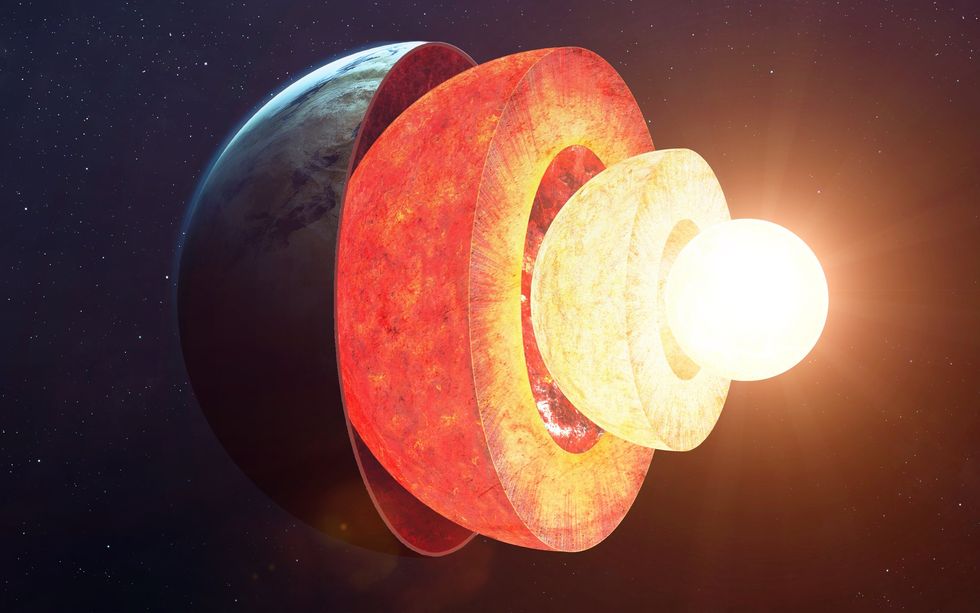Members of the scientific community have been fascinated by the structure of the Earth beneath our feet lately, and it turns out to be much more complex than people first thought.
First, we learned of the news that there is a huge ocean under the earth’s crust that contains more water than all the seas on the surface.
Now, another study has been published that takes an in-depth look at the geology under the Southern Hemisphere.
New research published in Science advancesfound evidence that the entire ocean floor does indeed extend in length around the core.
subscription To our new free weekly newsletter from Indy100
This is a relatively thin layer that lies at the core-mantle boundary about 1,800 miles below Earth’s surface. It’s an ancient formation that could provide more insight into the planet’s structure beneath our feet.
Geologist Samantha Hansen of the University of Alabama and her colleagues led the research. They observed the structure using 15 observing stations under the ice of Antarctica, mapping waves from the earthquakes.

Doing so allowed them to analyze the Earth’s subsurface structure, including regions of extremely low velocity where waves travel much slower.
“Earthquake probes, like ours, provide the highest resolution imaging of the internal structure of our planet, and we are finding that this structure is much more complex than previously thought,” Hansen said.
Analysis [thousands] From seismic recordings from Antarctica, our high-resolution imaging method found thin anomalies of material in the CMB everywhere we looked,” said geophysicist Edward Garnero of Arizona State University.
The thickness of the material varies from a few kilometers to [tens] of kilometres. This suggests that we see mountains in the core, in some places as high as five times Mount Everest. “
“Our research provides important links between shallow and deep Earth structure and the overall processes that drive our planet,” Hansen added.
Share your opinion in our democratic news. Click the vote icon at the top of the page to help raise this article through the indy100 rankings.

“Twitteraholic. Total bacon fan. Explorer. Typical social media practitioner. Beer maven. Web aficionado.”
